- Home
- Todd Strasser
Summer of '69 Page 4
Summer of '69 Read online
Page 4
“For human hamsters.” Arno puts the thing back in the cardboard box and slams the trunk. “It’s a pill press. There’s gonna be something like ten thousand hippies at that music and art festival.”
“You’re . . . going to make pills?” Milton asks uncertainly.
“Aaa . . . cid.” Arno stretches the word. “Ows . . . ley. Two . . . thou . . . sand . . . hits. Three days of peace and music for a bunch of stupid hippies . . . and six thousand dollars . . . for Arno Exley Junior.”
Arno offers Milton a ride home, but he says he’d rather walk. As soon as the GTO roars off, Milton turns to me. “Monday night after dinner. We’ll go to the American Friends office together, okay?”
Not that he has any reason to see a draft counselor. Like all college students, he’s exempt from military service thanks to the vaunted 2-S student deferment. He’s just worried I’ll put it off.
“How’s Rudy doing?” I ask, since fleeing to Canada has suddenly become a possibility in my life as well.
Milton scuffs a tire-tread sandal (still no socks, thank God) against the sidewalk. “Shitty. He’s living with my uncle’s family in Saskatchewan, the middle of nowhere. Doesn’t know anyone. Doesn’t have a piano. And guess where my uncle works? Dow. How’s that for irony?”
Because the Dow Chemical Company produces napalm, it’s the poster child for the American military-industrial complex currently reaping millions from the war in Vietnam. Napalm is a flammable jelly the military uses to torch vast swathes of Vietnamese jungle and people. Water boils at 212 degrees. Napalm burns at 2,000 degrees. Witnesses say watching it immolate jungle is like looking into a sea of fire. It sticks to human skin and melts flesh. Since it’s dropped from bombers high above, the military has no way of knowing (and clearly doesn’t give a crap) how many Vietnamese women and children it incinerates daily.
“So, see you Monday after dinner?” Milton may be young, completely lost as far as girls are concerned, and quirky about dark, claustrophobic spaces, but he is a solid dude.
“You don’t have to,” I tell him. “I said I’ll go.”
Milton looks dubious. “Promise?”
I promise.
Milton leaves. I stand in the driveway, gazing absently at the placid tree-lined suburban street. The tent caterpillar nests are still small, but there seem to be a lot of them this year. This is the street where Arno and I used to ride our bikes, throw footballs, and play fungo with a bat and a tennis ball. This is the driveway where Robin and I would park at night and make out for hours. It’s a warm afternoon, but the military draft sends a shiver to my core. I can’t completely process what’s happened. It’s like you graduate from high school and if you’re not going to college, the party’s over. Suddenly, dying and displacement apply directly to your own pitiful butt. I can’t even ask why anyone didn’t warn me. All the warning signs were there. The real question is, why didn’t I take them more seriously?
From around the corner comes the downshifting burble of a well-tuned four-cylinder engine. A moment later, the paterfamilias pulls up in the MG. Riding shotgun is a heavyset balding man wearing a blue blazer, white shirt, and a red-and-blue-striped tie. He heaves himself out of the car.
“She’s a beauty, just as you promised,” the man says to the paterfamilias, who’s also gotten out. (A few years ago, he had the MG painted a color called Rolls-Royce Willow Gold. With immense pride he will tell anyone willing to listen about the eleven coats of paint needed to achieve its deep, lustrous finish.)
“And hard to find. Probably less than three thousand in the entire country,” the paterfamilias replies. He and the heavy man turn their gazes to me.
“This is my son Lucas,” the paterfamilias says. “Lucas, this is Mr. Brown.”
When I shake Mr. Brown’s meaty hand, he doesn’t release it right away. It feels like he’s appraising me. Makes me uncomfortable. I gesture to the red sports car at the curb. “Nice Jag.”
“Fifty-two XK One Twenty.” Mr. Brown lets go of my hand. “Something, isn’t she?”
“She sure is,” I reply.
Introductions complete, the paterfamilias gives me a look that I interpret as an invitation to disappear.
With pleasure.
Last Friday, a few days before Robin and I left for Maine, I came home from her house to find the paterfamilias simonizing his prized possession. This labor-intensive process begins with a soapy hand-washing using only natural sea sponges, then a careful drying using special goatskin shammies, followed by polishing and buffing. I know the process intimately because for years it was my responsibility once every spring and fall. I hated it, just as I hated all the chores the paterfamilias foisted on me. As if I were conceived specifically for the role of household peon.
That afternoon, I paused to watch while he squatted beside one of the car’s broad fenders, rubbing away the dried whitish simonizing compound with a soft cotton cloth. His tanned forehead was dotted with sweat, the slightly brownish trail on his temple evidence of the hair dye he’s recently started using. I wondered if he was recalling the good old days when he’d been able to make me do all the work.
“Don’t you usually do this in April?” I asked.
The paterfamilias wiped the sweat off his forehead with the back of his hand. “I’m going to a classic-car rally up in Newburgh.”
That sounded odd. As far as I knew, he’d never gone to a classic-car rally before. Especially on a summer weekend, when his chief preoccupation was playing three or four hours of tennis each day.
A few hours later, he left.
Friday ended, Saturday passed, and on Sunday afternoon, Robin and I departed for our ill-fated Maine fling, heading east on the Long Island Expressway toward Orient Point, where we would catch the ferry to New London. We were near the Melville exit when something in the westbound lanes caught my eye. It was the gold MG with the top down. For a moment, it made no sense. The paterfamilias had said the classic-car rally was in Newburgh, which is in upstate New York, not out on Long Island.
But there he was in the driver’s seat.
And next to him was a blonde.
I would like to be
A famous writer.
But I am neither brilliant
Nor dead.
“I adored that book.” Tinsley reaches over and touches the spine of my dog-eared copy of Trout Fishing in America.
“Yeah, pretty trippy.”
She, Cousin Barry, and I are behind the junior high, on a blanket spread on the grass, keeping an eye out for school employees and police while we smoke a joint of hash and tobacco. It’s rare that I see Barry more than once every few weeks, but Arno and Milton aren’t around today, and I’m finding it difficult to adjust to the emptiness of life without Robin. Except for Easter vacation this year, we haven’t been apart for more than a day since last fall.
The weather is overcast, warm, and breezy. Barry sits cross-legged, working a string connected to a red-and-black kite shaped like a ladybug fluttering a hundred feet above. He says the hash and tobacco mixture is popular in Europe.
Tinsley lies on her stomach, shooting photos of Barry’s profile. I’m lying on my side reading the book, which is mostly not about trout fishing. Even more than usual, I’m finding it difficult to focus. Partly it’s the hash, which is a lot more potent than the twig-and-seed-littered weed we often encounter. Partly it’s the very dark and ominous cloud called Vietnam that now looms ever present in my thoughts. But at this moment much of my distraction is due to Tinsley.
According to Time magazine, we have entered the era of women’s liberation. Females are throwing off their sexpot and housewife stereotypes and throwing out their bras, razors, and hair dryers. They call it going natural.
In Tinsley’s case, it appears she’s held on to the razor. Nor has she given up her eyeliner, mascara, and lipstick. The eyebrows she likes to raise tantalizingly are carefully sculpted, and her fingernails are glossy. But her peasant blouse has a loose, open neckline, and when she props herself on
her elbows and holds the camera to her face, you can see her breasts all the way to the pink nipples. (I have to believe she’s aware of this.)
Only it’s more than bare skin. Her vibe is alluring, vulnerable and inviting, impossible to ignore. The way the small of her back curves. The way, when she lies on her stomach, her legs scissor at the knees, toes pointed upward.
Her presence makes me wonder if hanging out with Barry today is a mistake. I shouldn’t be entertaining these thoughts, even while high. My aching heart belongs to Robin. Plus there’s the bitter memory of the blonde in the MG. It’s not that I didn’t know the paterfamilias cheats on Mom. He’s been doing it for years. But it’s one of those recollections that lies dormant in the distant reaches of some deep cave of the mind and only awakens when something like last Sunday jars it.
Thinking of Robin, I decide this is a good time to write another letter to her. I didn’t bring any paper, but I can tear a blank page out of the back of this paperback. “Anyone have a pen?”
From her fringed leather bag, Tinsley produces a fountain pen with a gold nib. When she leans over to hand it to me, the neck of her blouse falls open, and my eyes suddenly have minds of their own. It’s disconcerting. I’ve never encountered someone so overtly sexual before, someone who seems to harbor actual exhibitionistic tendencies. Barry’s saying that she does as she pleases feels like something of an understatement.
“I love when he goes to the warehouse where they sell waterfalls,” she says, not taking her eyes off mine.
“And you have to buy them in sections and put them together,” I add. We share a smile, a connection, the intimacy that comes with being members of the subgroup of freakerati who subscribe to Richard Brautigan’s off-kilter vision of the world. And today it’s all amplified. The spacey hash high, the literary connection, and, yes, I’m forced to admit, the titillation of Tinsley’s secretive exhibitionism.
“So, when’re you gonna see your girlfriend?” Cousin Barry asks without taking his eyes off the ladybug kite high above. Has he picked up on the vibe between Tinsley and me?
“Twenty-six days,” I answer.
“Where is she?” Tinsley asks.
“A camp north of Ottawa.”
Barry turns. “For real? Zach and Eva are crashing at a farm somewhere around there. He keeps saying I should make the scene.”
“Avoiding the draft?” I ask.
“Naw, he’s Four-F. Flat feet.”
4-F for flat feet? That’s a surprise. A borderline condition like that might exempt you from the army in places like Houston or Pittsburgh, where there is a plentiful supply of draft-aged grist for the military, but it’s been my impression that at the army induction center in Brooklyn, they’d slap a pair of orthotics on your feet and ship your woeful behind straight to basic training.
And while I’d never begrudge Cousin Barry his mental problems, they do come with a silver lining. His stints in the loony bin have resulted in his receiving a 4-F classification as psychologically unfit for service.
Barry relights the hash joint. “Remember the first time I got you high?” he asks me in the tight, breathless voice of one who is trying to keep smoke from escaping his lungs.
Before I answer, I also take a hit. When Tinsley accepts the joint from me, her fingertips caress my hand in a way that doesn’t feel accidental. “First time I smoked, I didn’t feel a thing,” she says. “Did you?”
“They told me to swallow the smoke,” I recall. “An hour later, I burped and a puff came out.”
“Zach and I were goofin’ on you, man.” Barry chuckles and tugs on the kite string.
Goofin’ on Lucas was a regular pastime when I was in my prepubescence and Barry was my idol. Barry was edgy and daring. He had one of the first skateboards, wooden, pointed at the front like a miniature surfboard. There was a big chip in the nose where he said he’d crashed into a curb. At that age, being able to say you’d crashed into anything was a mark of distinction.
He was also athletic. You wouldn’t believe how far he could throw a football at nine years old. He had a pull-up bar in the doorway of his room and could do a dozen pull-ups and chin-ups. He could ride a bike balancing on the back wheel, walk a few steps on his hands, clap between push-ups.
I idolized him; he did his best to ignore me. I was weak, physically timid, athletically unexceptional, prone to daydreaming. Hardly able to do a pull-up, and after five push-ups, I’d be as swaybacked as an old horse. I once watched, fascinated, while Barry — unaware of me — admired himself in a mirror. At that age, when I looked in the mirror, I failed to see anything worth admiring.
But even as a kid, there was a dark side to Barry. He could be pensive, moody, even morose. On those rare occasions when he submitted to my company — usually under duress at some family get-together — he might suddenly take a swing at me for no reason. Back then, I even found his unpredictable violence admirable. And to me, those brooding silences and sudden bursts of ferocity bespoke inner depth, although now I suspect that they were merely moments when his frustration at being stuck with his nerdy cousin boiled over.
No bra arouses
The imagination.
One can’t help but wonder:
Panties?
Overhead, thick gray clouds have begun to gather. Lucas the Very Stoned can feel the dampness in the air. Maybe they should split, but that second round of tokes on the hash joint has left them all too zonked to consider movement without suitable cause.
Lucas turns on his side, props up his head, and tries to read a chapter entitled “Trout Fishing in America with the FBI,” but the sentences don’t begin with capital letters, and thanks to the hash, Brautigan’s words have become difficult to string together into sentences.
Tinsley aims her camera at him. It says LEICA on it. A brand he’s never heard of. The shutter clicks. Something stirs inside him. The hash has poked holes in the testosterone dam. Thoughts of cupping her breasts in his hands, the excited spark of her nipples against his palms. But wait . . . What happened to the letter he was going to write to Robin?
He’s just torn a blank page out of the back of the paperback when the wind suddenly swirls, snatching the sheet and sending it across the field behind the junior high. His hair whipping across his face, Barry gets to his feet to control the kite. He and his friend Zach were among the first guys Lucas saw grow their hair long. One night a few weeks after they introduced Lucas to grass, Barry and Zach went to see the Young Rascals at the Westbury Music Fair. Neither of them was old enough to drive, so they took a bus. After the concert, they were waiting for the bus home when a bunch of guys jumped them.
These days, if you fly your freak flag, chances are that sooner or later someone’s going to say something. But it’s nothing like it was in 1965, when hardly anyone had long hair and the few guys who dared to were subject to daily harassment. Barry and Zach were badly beaten. Some of their hair was pulled out and much of the rest chopped off with scissors. (The police speculated that their attackers had come equipped for hippie hunting.) When Lucas saw Barry a few days later, his cousin’s nose was bandaged, eyes blackened and swollen, lip split, a tooth chipped. No arrests were ever made — though Lucas the Cynic has doubts about how hard the cops looked for the guys who beat up a couple of long-haired dirty drug-taking peacenik faggot hippies.
What happened turned Barry into a basket case.
On the blanket behind the junior high, Tinsley inches closer on her elbows, her breasts in plain sight swaying inside the blouse. This is crazy, Lucas the Flustered thinks. He shouldn’t look. She raises the camera, and he stares instead into the rainbow-reflective depths of the glistening lens. Click.
She lowers the camera, then reaches toward his face. Barry is only a few yards away, his back to them as he works the kite string in the gusty breeze. Tinsley’s fingers softly trace Lucas’s cheekbones, nose, and lips. Her fingertips tickle and titillate. Her smile is beatific. Lucas feels off-kilter and weird. He also feels a growing tightne
ss behind the zipper of his jeans.
Robin, O Robin! Wherefore art thou
500 miles away, in the land of Hockey,
maple syrup, and polar bears?
Lucas the Aroused tries to redirect his eyes to his book. Tinsley’s fingers trace the skin down his arm. Goose bumps sprout with abandon. Her hand closes over his wrist.
Now what?
She tugs and his hand follows, crossing a few inches of blanket and sliding into the blouse so that his fingers ever so slightly graze the tip of one breast.
What the . . . ? Should he pull his hand back? Robin’s in another country, so she’ll never know. And when you get right down to it, this is pretty harmless. But Barry’s right here. So what? He’s the one who told Lucas that Tinsley does what she pleases.
Tinsley lowers her body, trapping his hand between her breast and the blanket. She turns her face away and makes a soft purring sound. It could be a chapter from Brautigan’s book. “Trout Fishing in America with Tinsley’s Breast.”
Lucas’s hormone-and-hash-addled brain is blown.
“Let me take a wild guess, Mr. Baker: the Selective Service induction letter came and you’re totally flipped out because you don’t want to go to Vietnam.”
The speaker is Charles. He is black, with an immense Afro and a Charles Mingus beard. His long legs are crossed at the ankles and propped on the corner of an old gray metal desk. His threads are jeans, cowboy boots, and a work shirt, a pack of Marlboros poking out of the left pocket.
His blatant antagonism has thrown me. I’ve come to this church basement office of the American Friends Service Committee for help, not ridicule. “I haven’t gotten a letter, but if I don’t do something, I probably will.”
“Ahh.” Charles nods with a knowing smile. “Planning ahead.” It’s close to eight p.m. When I got here around seven, there were two guys ahead of me in the waiting room. Both were what Barry would call plastic heads. Their hair longish but neatly trimmed and styled, their collared shirts pressed, and, perhaps most telling of all, their bell-bottoms carefully creased.

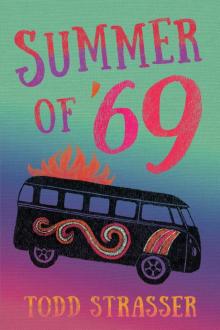 Summer of '69
Summer of '69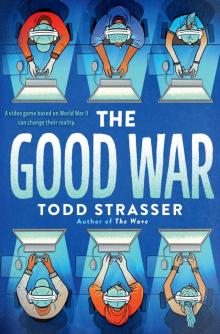 The Good War
The Good War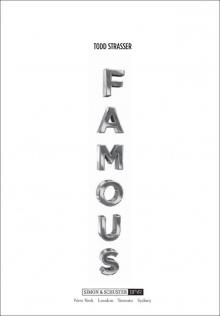 Famous
Famous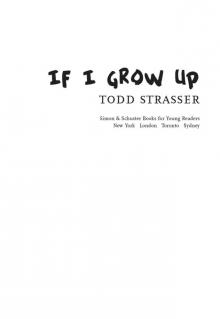 If I Grow Up
If I Grow Up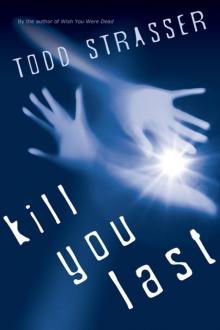 Kill You Last
Kill You Last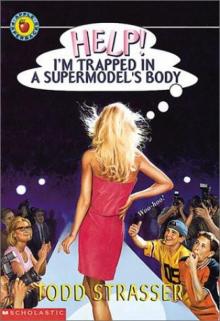 Help! I'm Trapped in a Supermodel's Body
Help! I'm Trapped in a Supermodel's Body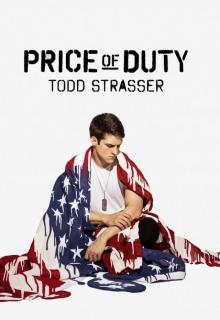 Price of Duty
Price of Duty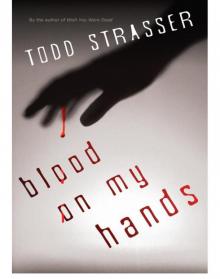 Blood on My Hands
Blood on My Hands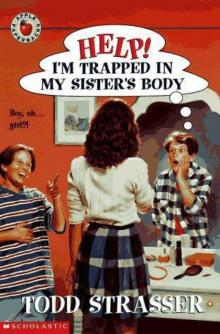 Help! I'm Trapped in My Sister's Body
Help! I'm Trapped in My Sister's Body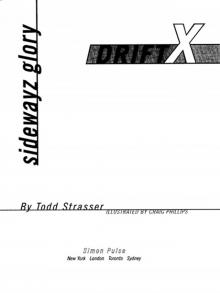 sidewayz glory
sidewayz glory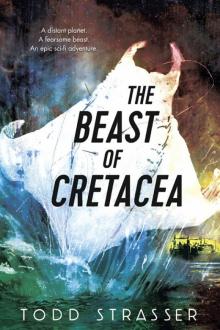 The Beast of Cretacea
The Beast of Cretacea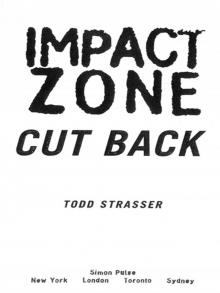 Cut Back
Cut Back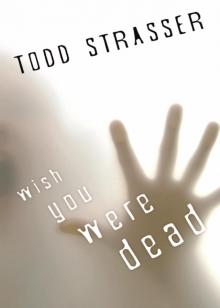 Wish You Were Dead
Wish You Were Dead The Wave
The Wave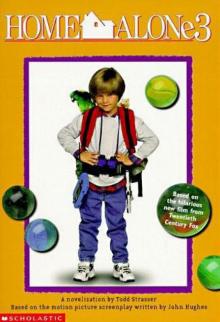 Home Alone 3
Home Alone 3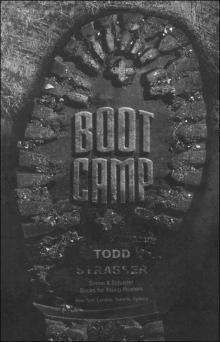 Boot Camp
Boot Camp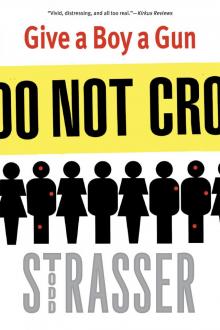 Give a Boy a Gun
Give a Boy a Gun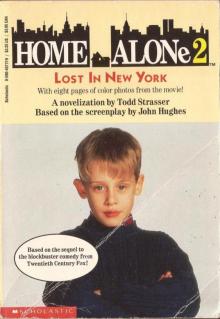 Home Alone 2
Home Alone 2 The Shore
The Shore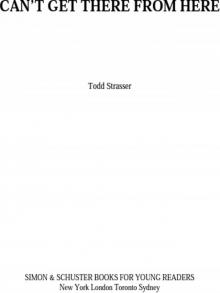 Can't Get There from Here
Can't Get There from Here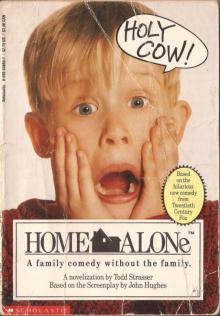 Home Alone
Home Alone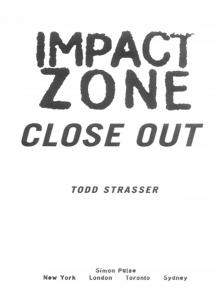 Close Out
Close Out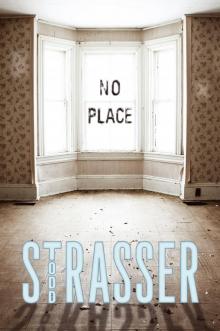 No Place
No Place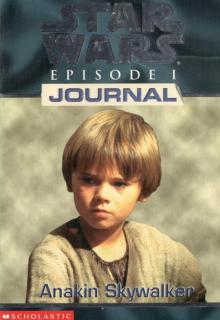 Star Wars - Episode I Journal - Anakin Skywalker
Star Wars - Episode I Journal - Anakin Skywalker